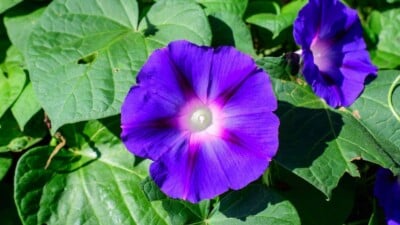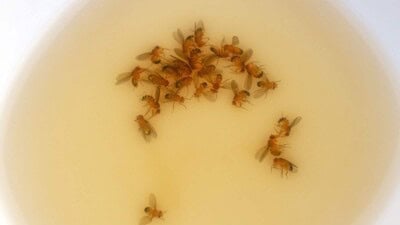Getting Started
Take the time to properly plan and prepare your rose garden and it will reward you with rich, sumptuous blooms year after year.

“Footfalls echo in the memory, Down the passage which we did not take, Towards the door we never opened Into the rose-garden.” – T. S. Eliot
Roses prefer a rich, well-drained soil that is slightly acidic (pH between 6.0 – 6.5). They like plenty of water and sun — at least eight to 10 hours — and grow best when protected from harsh wind and cold.
So, when starting a rose garden, look for spots that receive plenty of sun. If you have a choice between morning or afternoon sun, select morning. (Morning sun evaporates dew quickly – keeping leaves dry and fungal diseases at bay.) Note when the shade comes around and for how long. Really get a feel for the amount of sunlight the area receives and the type of soil it has. Roses are very tolerant of different soil conditions, but will thrive in garden soil that is improved with ample amounts of organic matter, such as compost, peat moss or aged animal manures. Learn How to Prepare Garden Soil here.
Get your gardens off to a great start and keep them productive with premium quality soil amendments. Need advice? Our Soils Blog provides the ideas, information and practical experience you need to get the job done right.
While it’s awfully tempting to rush out and begin planting right away, it’s a good idea to take a moment and plan your attack. Spend some time sketching out what will go where, and avoid growing roses under gutters or eaves where falling snow or ice can damage tender canes. If you’re interested, Martha Stewart gives her version of the ultimate rose garden here.
In addition to plenty of light, try and give your roses plenty of room. Don’t plant them too closely together. Giving them space will allow air to circulate and will protect them from plant diseases that thrive on moisture.
Also, figure out how you will water your roses. Is the spot with the most light close to water? Or will you have to lug it? Are sprinklers a possibility? You may have to install underground drip irrigation or a sprinkler system to ensure your roses are healthy (see Drip Irrigation for Home Gardens – PDF). Healthy roses means plants that will bloom repeatedly.

Roses will survive with a minimum amount of water, but will flourish when grown in well-draining soils with ample amounts of moisture. Most importantly water slowly and deeply. A schedule of two deep waterings per week is far better than several light waterings, which will encourage shallow roots that are easily damaged and cannot adequately anchor the plant. To learn more about watering roses click here.
When possible, water on bright sunny mornings, especially if using overhead sprinklers. This will give the foliage time to dry out before evening, thus preventing many plant diseases (see How to Prevent Rose Disease). Fungal spores are especially prevalent in spring and fall when nights are cool and days are warm. If the leaves are allowed to remain wet through the night, disease can spread rapidly.

MADE IN THE USA
Soil Soaker
Made of 55% recycled rubber and can be used above or below ground.
Learn moreWhen Mother Nature doesn’t deliver, your garden doesn’t have to suffer. Our Soil Soaker hose offers deep, even watering throughout its entire length. Conserves water by minimizing runoff and evaporation and will deliver even greater water savings when covered with a moisture-retaining mulch.
Roses grown in containers will require more frequent watering because potting soils are often lighter than garden soil and the amount of soil around the plant is limited by the size of the pot. Watering container-grown roses once a day or even twice daily may be necessary, especially if they are located in a sunny location and the weather turns hot.
Tip: A 2 to 4 inch layer of organic mulch will reduce the need for watering by slowing down soil moisture evaporation.
Once you’ve selected your site, record how well your garden does and how you can improve things in the coming years of cultivation. Keep notes about how much your watering, what sort of fertilizer you’ve used and how your roses have done for the year (see Keeping a Garden Journal). Tracking such things will ensure that your roses will improve each year as you learn from mistakes and find out what works and what doesn’t.
















